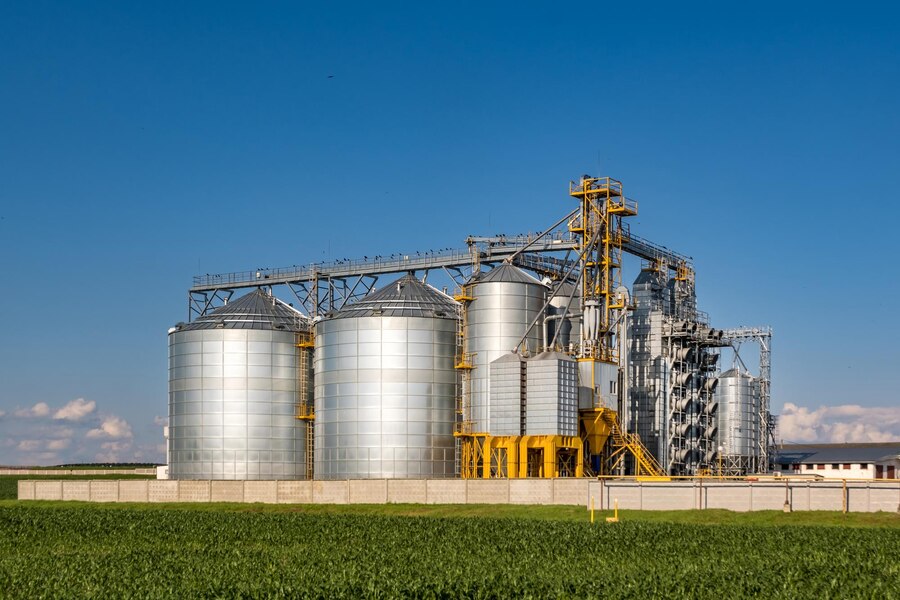Agriculture is the major cultural aspects of India and the changes that took place in the country during the decades influenced the farming activities. At the core of these changes is the agrochemical industry which is of a great importance to boost up the crop yield and food production. Being the fourth largest producer of agrochemicals in the world, India plays a crucial role in feeding the globe. Exploring this blog, one is going to read about the matter associated with the agrochemical industry in India, from the historical perspective to the existing situation in India that is facing currently.
Historical Evolution
India’s agrochemical industry can thus be discussed as evolving in the times after the Green Revolution of the mid-twentieth century. This time saw some more enhanced technique of farming through more production of crop variety and usage of fertilizer and pesticide. It grew steadily to feed the growing streak for the agricultural inputs mainly due to the government policies regarding modernization of agriculture and made India is a leading agricultural based country.
Profile of Major Players
At present, the structure of India’s agrochemical market can be described as rather diverse and including both Indian and foreign companies. Major players are Bayer CropScience ag, Syngenta, UPL Ltd. Some of the Indian players are PI Industries and Dhanuka Agritech. These firms produce all types of chemicals that farmers require such as pesticides, fertilizers, herbicides and plant growth regulators.
Market Growth
This market growth is well driven by the need to improve on crop yield to feed a constantly growing population. Its products are fertilizer, pesticide, insecticides, plant growth regulator and many more. The market forces include the government policies, the prevailing climate, instances of pest attack and shifting consumer trends. The industry is tightly associated with the constant research of new formulations and technologies in order to improve the efficiency.
Regulatory Environment and Sustainability
The agrochemical industry can be said to work under a legal framework when it comes the use of products such as pesticides where it is controlled by Ministry of Agriculture and Farmers Welfare, Central Insecticides Board and the Registration Committee. Withdrawing nonstandard products off the market provide consumers with products that meet safety requirement on human life, the environment, and effectiveness.
Challenges and Future Outlook
The agrochemical industry plays a crucial role in its economy, but it cannot escape from the given below challenges. These include:
- Regulatory hurdles: Slow approval of new products, and strict registration mechanisms.
- Environmental concerns: Environmental pollution especially water and soil pollution as a result of overuse of chemicals.
- Resistance management: A pest or a weed gains the ability to withstand the effects of the pesticides/ herbicides that are ordinarily used in the crop fields.
- Consumer awareness: It is also as a result of increasing consumers’ preference to organic foods and eco-friendly farming.
Considering the future, the said industry seems to have a bright future in India, yet not without some noticeable challenges. Biotechnology, digitalization in agriculture and other related farming technologies are key drivers of growth expected from precision farming.
Trends and Innovations
The industry is witnessing several trends and innovations aimed at addressing these challenges:
- Biopesticides: At present, there is a global transition to the use of biopesticides; these are safe and more sustainable to produce. It is for this reason that today biopesticides in the market have been reported to be accounting for 15% of the market share.
- Precision Agriculture: Currently the utilization of precision techniques is on an incline, these techniques furthers the procedural approach of field management.
- Research and Development: Businesses are spending more money on their research and technologies with a view of being in a position to bring new products to the market with better features that provide better solutions to the customers while at the same time being friendly to the environment.
Government Initiatives
The Indian government has realized the significance of the agrochemical industry and has formulation some programs for its development. Some of them are subsidies of fertilizers, support of the initiatives related to the improvement of soil management and conservation, and attempts to minimize bureaucratic red tape.
Conclusion
The Indian Agrochemical Industry is at this cross road where on one calls for an increased production and on the other hand conservation of resources is the focus. As they rise up to the challenge and exploit the opportunities, the industry is ready to spearhead the provision of food security, improvement of farmers’ incomes, and the management of the environment.
Meta Description: Analyzing such dynamics will enable stakeholders to make right choices regarding the industry’s sustainable development and help the nation’s agriculture booms.




